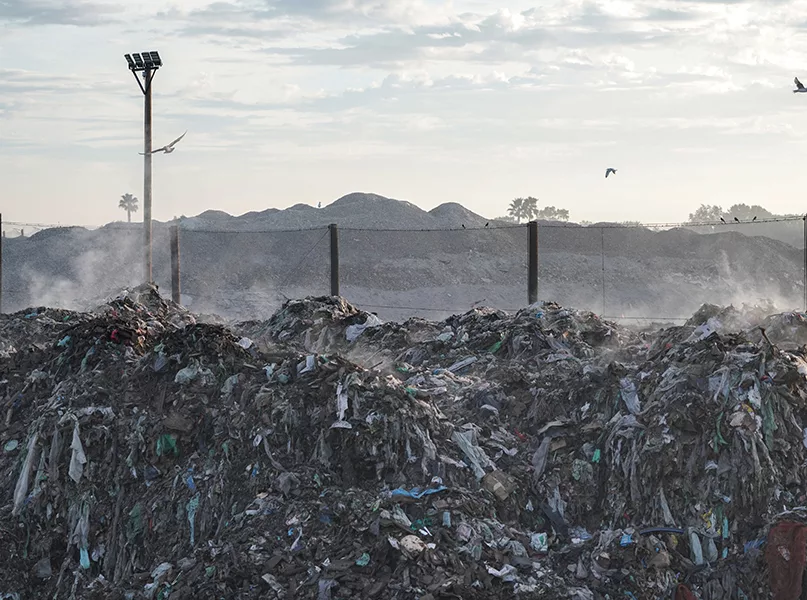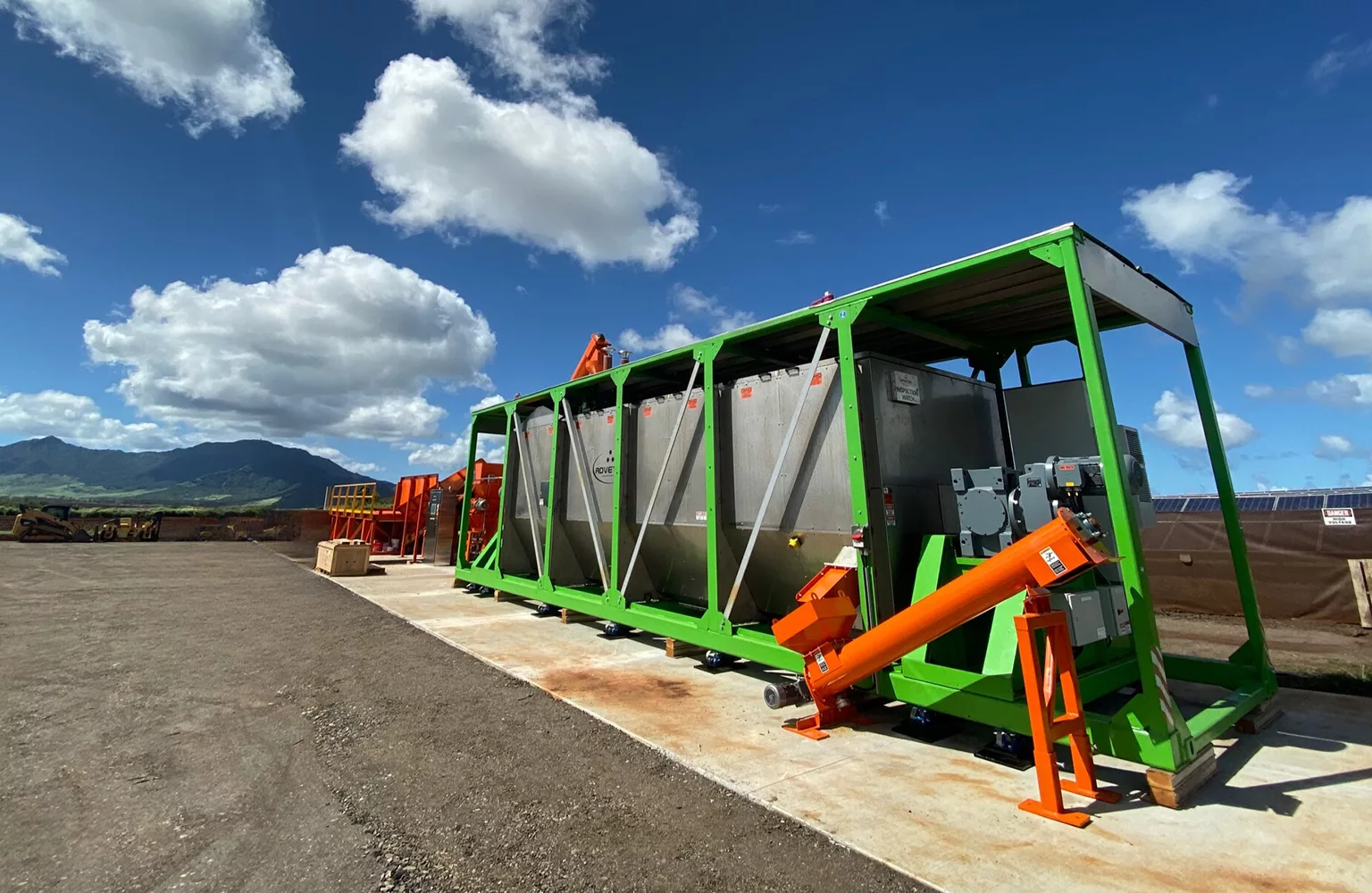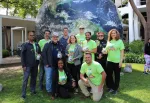In the world of waste management, strides are being made at an unprecedented pace to reshape how we handle the world’s refuse. But, amid these advancements, could biotechnology emerge as the pivotal piece of the puzzle, unlocking new possibilities to not only reduce costs but also salvage inherent value and, crucially, minimize emissions? Scott Owen, Director of Business Development at Advetec North America, explores.
REVOLUTIONIZING WASTE MANAGEMENT
As mountains of discarded waste destined for landfill continue to pose a daunting challenge, the need for innovative solutions has never been more pressing.
At the forefront of this environmental obstacle is Advetec North America (Advetec), a pioneering biotechnology company revolutionizing how waste is managed.
Specifically, Advetec helps organizations reduce the volume of non-recyclable waste they discard and explores how alternative methods of disposal can help bring us one step closer to a more circular economy.
In a global context, where the urgency of addressing climate change intensifies, refining the post-consumption process is no longer solely about cost reduction but also a pivotal step in reducing environmental impact.
Conventional practices —predominantly characterized by transporting waste to landfills, burying excess materials underground, or resorting to incineration — have demonstrated both environmental harm and long-term financial unsustainability.
GROUNDBREAKING BIOTECHNOLOGY
At the core of Advetec’s success lies a groundbreaking waste-eating biotechnology that addresses the growing challenges posed by unrecyclable waste.
Unlike traditional disposal methods, Advetec’s in-vessel aerobic digestion method accelerates the breakdown of waste – achieving in 48 hours what takes 16 weeks to do using traditional methods.
Depending on the input, the end result is either a solid recovered fuel (SRF) that can be used to decarbonise energy intensive industries like aviation and cement, or a nutrient-rich compost to promote soil structure and fertility.
The uniqueness of this approach lies in its ability to handle diverse waste streams effectively. From grease-stained pizza boxes to food-tainted sauce pots, Advetec’s waste-eating technology ensures that organic matter is extracted from what was once deemed unrecyclable.
This not only reduces the volume of waste destined for landfills, but also contributes to the creation of a circular economy where waste is repurposed, recycled, or transformed into valuable resources. The output – which is then free of organic material – is completely stabilized, avoiding harmful emissions.
Its high calorific value also means it can combust at a much higher temperature and is therefore excellent for energy production, thus contributing to a more sustainable and resource-efficient waste disposal solution that helps bend the linear economy to become more circular in the future.
From large-scale infrastructure and leisure facilities around the world, to the vital waste services depended on by communities, Advetec has worked with leading businesses across the globe, including Six Flags, Royal Caribbean Cruises, and Simon Group.
Recently accredited by the Solid Waste Association of America (SWANA), the firm is also certified by other established associations, including the Chartered Institute of Waste Management (CIWM), United Response Operators Consortium (UROC), iBioIC, and Resource Management Association Scotland (RMAS), and is a partner of The Association for the Advancement in Sustainability in Higher Education (AASHE).
Through pioneering biotechnology solutions, Advetec has diverted tens of thousands of tons of waste from landfills and saved over $1.2 million for clients in North America and the Caribbean alone through improved efficiencies. The XO technology, capable of treating 10 tons of non-recyclable waste, spares six tons of CO2e with each process.

TACKLING PROPER WASTE DISPOSAL
The company has strategically expanded its operations into a new vertical market by targeting large university campuses.
Recognizing the substantial and diverse waste streams generated by these institutions — encompassing everything from paper and plastic to food waste, as well as specialized disregards from laboratories, for example — Advetec’s waste reduction technology provides a tailored solution to help universities and colleges significantly cut down their carbon footprint.
Helping institutions bring unrecyclable waste into the circular economy doesn’t just reduce the volume of waste sent to landfill and minimize harmful greenhouse gas (GHG) emissions. It also enables professionals on-site to leverage the calorific value in waste that cannot be recycled, with SRF able to be used directly on campus to generate heat or energy, or be resold for energy recovery.
Some of Advetec’s customers use XO systems to transform their food waste into compost. If purely organic waste streams are inputted into the machine – for example, food waste – universities have the option to compost their organic waste and use it in their gardens in the same week.
Because this is processed in-vessel, it prevents the attraction of unwanted vermin, eradicates potent smells, and produces a nutrient-rich resource with multiple benefits. Taking 48 to 72 hours instead of 12 to 16 weeks, it also makes for a much more efficient process.
The fertilizer can be spread on campus grounds, which not only helps to improve the site’s appearance and helps to grow produce for canteens, but also sequesters carbon back into the soil to help offset emissions.
CATALYZING SUSTAINABLE PRACTICES
In recent years, conversations around sustainable practices have gained momentum across North America.
Stringent legislations and a growing awareness of environmental issues have driven a demand for innovative solutions and increased recycling efforts.
Advetec does not merely offer a solution; it actively participates in shifting the mindset and actions of key decision-makers through education and awareness around biotechnology and unrecyclable waste.
The company emphasizes the importance of not just selling a solution but contributing to a paradigm shift in waste management practices.
As organizations strive to enhance their environmental performance, it is crucial to recognize that waste serves as one of the most straightforward metrics to measure, given its tangible nature as a known physical resource. Nevertheless, the importance of waste management goes deeper than quantity considerations.
When waste containing organic materials is deposited in landfills, the consequential release of methane emissions becomes a critical concern.
Methane, recognized for its significantly higher potency than carbon dioxide, boasts a global warming potential despite its shorter atmospheric lifespan.
In the quest to bolster environmental credentials, organizations must duly focus on Scope 3 emissions, particularly those associated with methane. Originating from diverse sources such as landfill activities, livestock farming, and oil and gas operations, this potent GHG carries substantial global warming potential.
According to the US Environmental Protection Agency (EPA), methane is the second-most emitted (16 percent) on a global scale. Acknowledging the role of methane in climate change, organizations are increasingly prioritizing efforts to reduce emissions, aligning with their broader sustainability goals.
There’s no denying that the road to a truly closed-loop future will continue to have its challenges. But the paradigm shift, spearheaded by companies like Advetec, represents a transformative moment in the waste disposal industry.
Harnessing the power of biotechnology, specifically through innovative on-site digestion and the creation of SRF and nutrient-rich compost, Advetec is not merely addressing the challenges of waste disposal but revolutionizing the entire waste management ecosystem — reducing contamination and landfill rates, curbing GHG emissions, and ultimately, helping to save the planet.
THE BENEFITS OF ADVETEC’S TECHNOLOGY
- Significant cost savings – By processing waste on-site and optimizing the process continuously, organizations can achieve 40 percent reductions in waste management costs depending on their processes.
- Reduced environmental impact – Advetec’s technology overcomes infrastructure challenges, making on-site eco-friendly practices feasible. The stabilized floc output can be sent to landfill, where it will no longer emit harmful GHGs, or used as an SRF, contributing to a circular economy. The process also minimizes the municipal solid waste mass by 50 percent, and volume by 70 percent, as all organic matter is effectively removed from waste.
- Circular economy initiatives – Incorporating SRF into the circular economy framework minimizes waste and maximizes resources. Leading organizations can set an example by promoting sustainable consumption practices and increasing the value of their waste.









